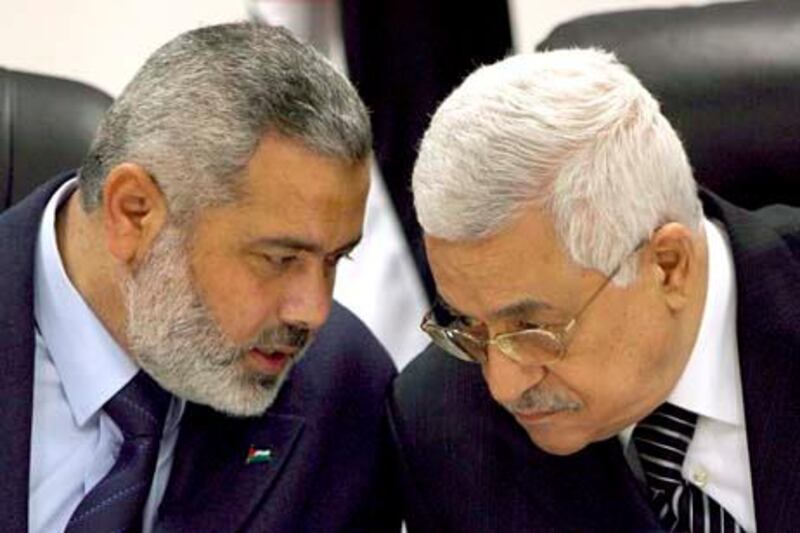When it comes to elections, as with many things, the experiences of Palestinians and Israelis could hardly be more different. Israeli voters have gone to the polls five times in less than four years. Palestinians living in the West Bank have had the same government for more than 15 years, the last legislative elections there having taken place in 2006.
Organising a vote while under military occupation would be a challenge – to put it mildly – for most nations. Nevertheless, many Palestinians, younger ones especially, have grown tired and apathetic towards politics as their society and economy degrade. The sense of drift and disillusionment is palpable. This is why reports of rare talks in Turkey this week between the two main Palestinian factions – Fatah, which governs the Palestinian Authority in the West Bank, and Hamas, the militant political party ruling Gaza – could be significant.
As Israel’s current political leadership lurches increasingly towards the far right, and its citizens find themselves more polarised than at any time in the state’s history, Palestinians urgently need effective representation and leadership. The major Israeli raids on Jenin in June and July were only the latest examples of how vulnerable Palestinians are to abuses from occupation forces and attacks from militant settlers. Political and strategic paralysis among the various Palestinian factions has not only led to morale-sapping stasis, but also left a gap that has been filled by militants – such as the Lion’s Den group in Nablus – who seem to answer only to themselves, not the PA nor its leader, President Mahmoud Abbas.

Details about the talks in Turkey are few, and neither Fatah nor Hamas have publicly confirmed that any meeting took place. However, speaking after meeting Turkish President Recep Tayyip Erdogan in Ankara earlier this week, Mr Abbas said efforts were under way “to achieve the unity of the Palestinian land and people”. He said Fatah has sent invitations to the heads of various Palestinian factions for an urgent meeting on Sunday in Cairo. Moves towards some kind of joint approach may be afoot.
Fatah and Hamas have rarely engaged publicly. A meeting between them in June last year in Algeria was the first of its kind between the two in more than five years. The Cairo event on Sunday would also take place in a changing region where dialogue and engagement between former rivals is becoming more commonplace.
The need for progress in Palestinian politics is pressing. Just over two weeks ago, residents of Jenin city and its adjacent refugee camp – weary from days of serious violence and years of occupation – expressed frustration with the PA after Mr Abbas visited the area for the first time in more than a decade. The PA has become increasingly unpopular in recent years with a poll conducted last year showing that only 27 per cent of people were satisfied with its performance. Other factions have yet to offer solutions that can serve the Palestinian people best. Unity talks could be a first step out of the cul-de-sac the Palestinian leadership finds itself in, but only if all sides recognise that progress will require more than overcoming their differences. They must find a vision for Palestine that restores hope for all Palestinians.





